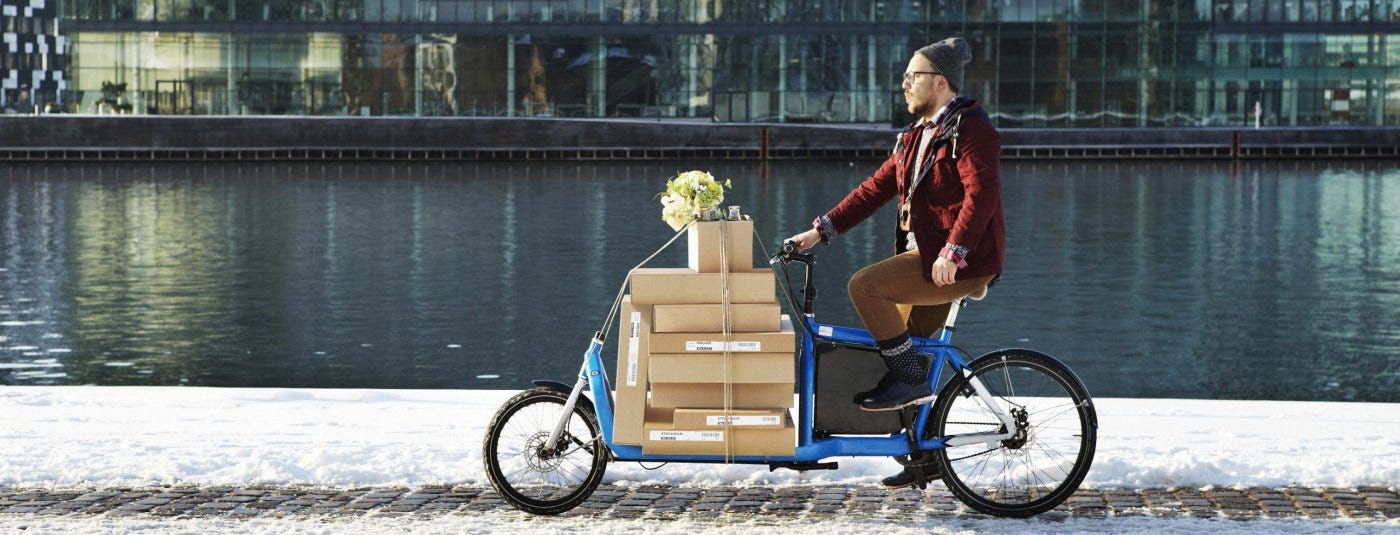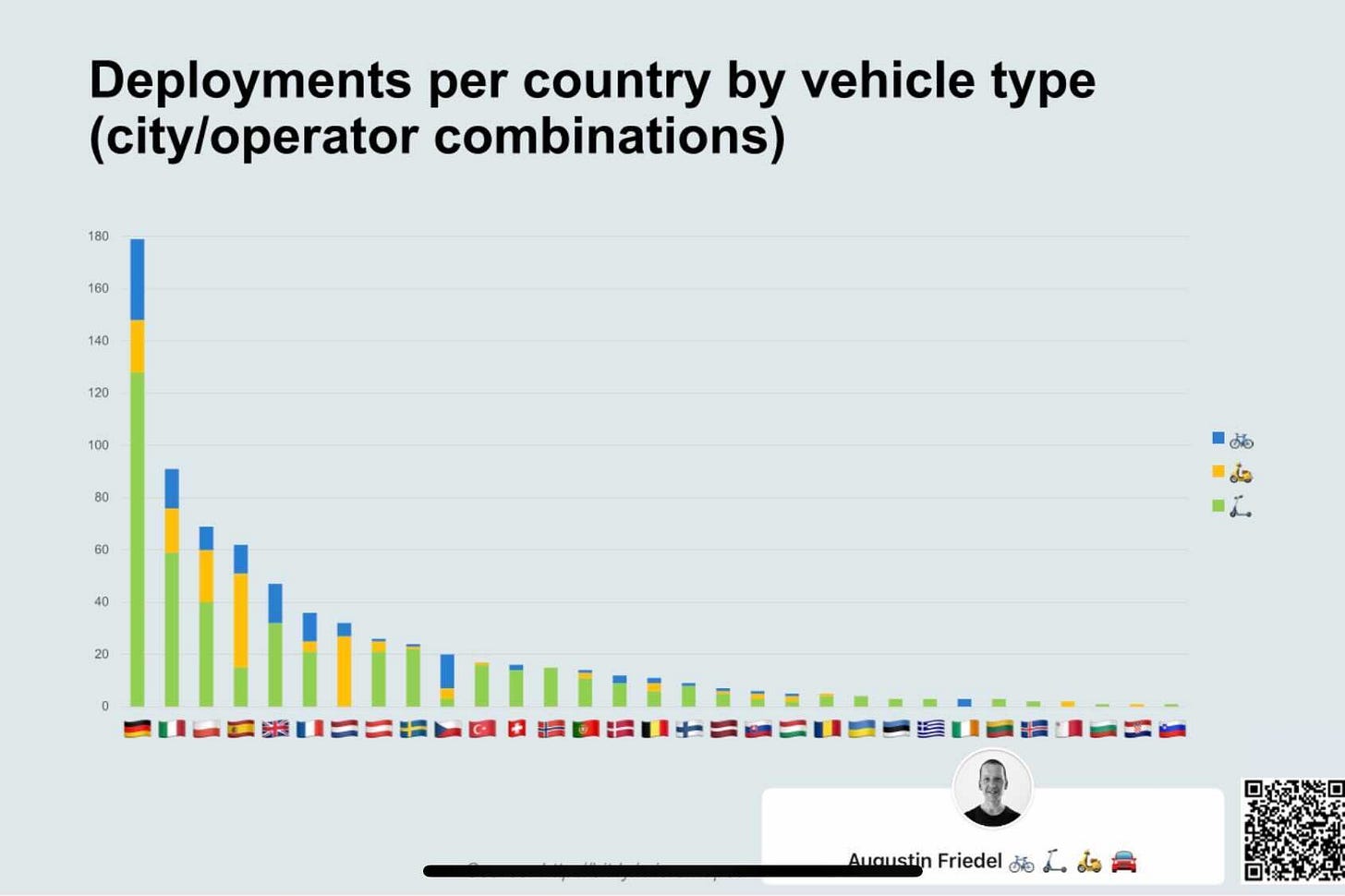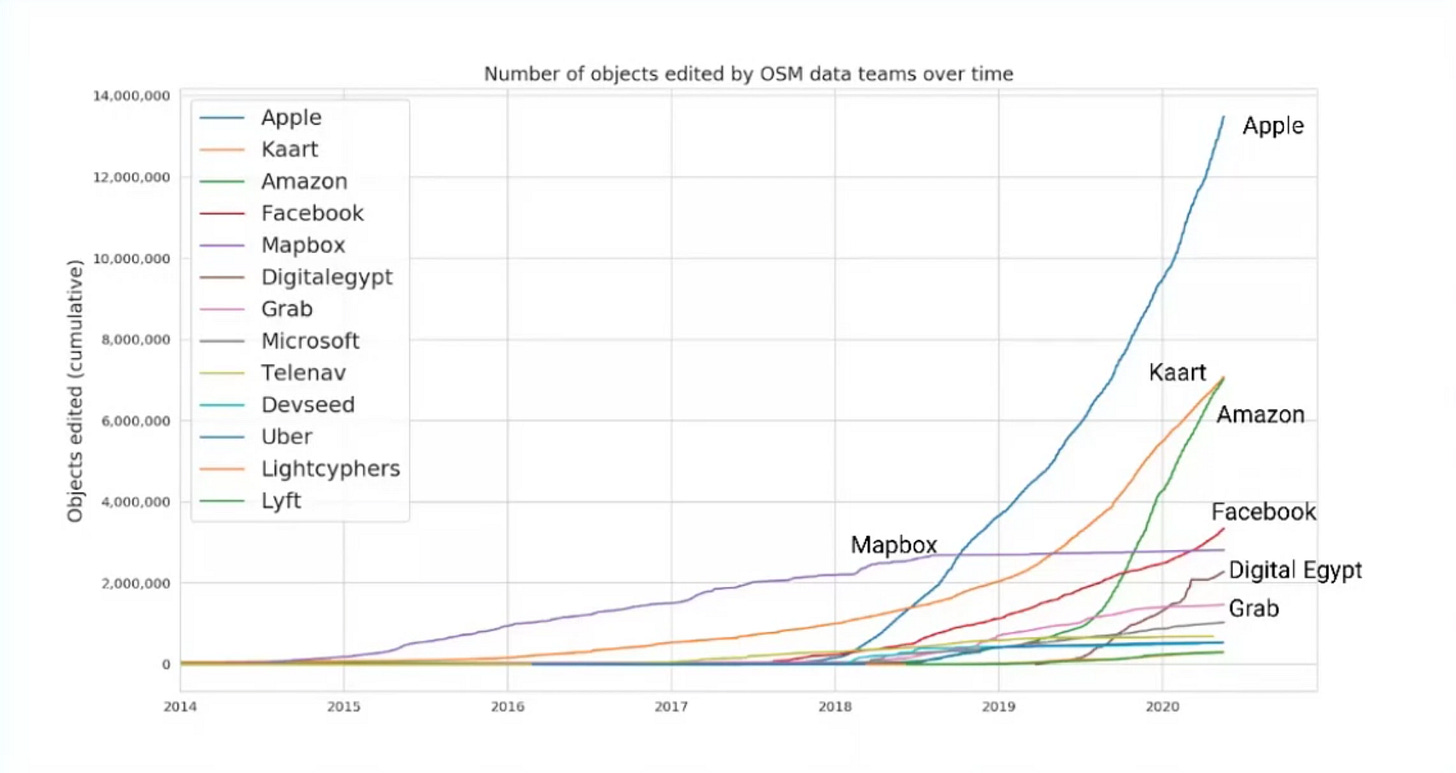China is owning micromobility
Plus, Lime is largely profitable, IKEA is renting cargo bikes, and delivery apps are building 15-minute cities in reverse.
Hello and welcome to the Micromobility Newsletter, a weekly missive about mobility, mostly mobility in cities by small electric vehicles like bikes and scooters. The reason you’re reading this email is that you signed up on our website or came to one of our webinars or events.
If you’re not a subscriber and you want to keep getting the latest news and analysis from inside the micromobility movement delivered straight to your inbox every Tuesday, sign up here for free. If you’d like to unsubscribe, just click that link.
Thank you for reading.
Reserve your spot at Micromobility World today
We’re less than 10 weeks away from Micromobility World (Jan 27-29).
Our first-ever all-digital gathering will unite an unprecedented mix of +2500 participants for three days of concise, focused content about the future of urban mobility.
We’re aware the one thing nobody needs right now is to spend another minute on a video conference. As such, each day will be short and sweet, featuring original thinkers handpicked to help you obtain insights and advantages. Check out the program here.
The best news… General Admission is free for everyone until December.
What you need to know this week
China is not only the engine fueling the global micromobility boom, it is the epicenter of growth. The country’s revenue from bicycle exports hit $1.1B in Q3, eclipsing the $1B mark for the first time since 1995. And with annual domestic sales of more than 30 million units in recent years, the number of electric bicycles in China has reached around 300 million, or about one for every five people.
What happens when your motorbike goes missing in China? From a new report on the country’s big data analytics: “Weifang’s ‘mobile guardian’ and ‘divine eye’ systems can automatically identify any vehicle by its license-plate number or other characteristics within seconds and track its movement. Police used these systems to investigate 100% of motorbike theft reports and returned all bikes to their owners.” (h/t Reilly Brennan)
Britain will ban the sale of new petrol and diesel cars in 2030, five years earlier than originally planned.
Best Buy is partnering with Instacart for same-day delivery across the US, joining several other major retailers. As shipping gets faster, delivery apps like Instacart are getting closer to reverse engineering a direct-to-doorstep version of the 15-minute city that urbanists dream of.


Bike riding in US cities is up 21% compared to 2019.
… but bike thefts are rising too. From March to September, nearly 70% more bikes were reported stolen than last year, per data from Bike Index.
Lyft grossed $25M in revenue from bikes and scooters in Q3.
Subscription micromobility is exploding, with numerous startups now leasing bikes and scooters in pursuit of all-important recurring revenue. On an exclusive webinar next week, Oliver Bruce interviews Richard Burger, founder of Swapfiets, about whether the HaaS model can trump sharing and owning. Sign up to unlock access.
Telkomsel, Indonesia’s biggest telecom network, has invested $150M in moped-hailing startup Gojek.
Electric scooters and bicycles are officially legal in New York City.
Lime was largely profitable last quarter and is on pace to be full-year profitable in 2021, excluding EBIT. Excitingly, the company also plans to add new modes next year, although it did not say what kind. A moped would be the logical next step, allowing Lime users to take longer trips, but you can ask CEO Wayne Ting about it yourself at Micromobility World on January 27th.
In other Lime news, its Gen4 scooter has launched in Paris. Based on Jump engineering, the vehicle boasts sidewalk detection capabilities, a swappable battery, and new tap-and-ride technology.
Munich is paying people with cryptocurrency to not park their car.
Tier is taking applications for businesses to join its battery charging network, offering to cover the cost of the hardware and electricity.
Related: A charging entrepreneur argues that the implementation of battery infrastructure will drive down the per-charge cost for a scooter from the “high single digits” to $2-3.
IKEA is renting e-cargo bikes to customers to bring furniture home in Germany.
Driven by ebike sales, Halfords, the UK’s biggest cycling retailer, doubled its profits in the first half of 2020.
Abu Dhabi-based scooter startup Fenix raised $3.8M in a seed round led by Maniv.
Bike-share pioneer Mobike declared insolvency in Germany.
Electric moped maker Niu’s revenue grew 37% in Q3, year-over-year, pushing its share price to fivefold increase since March. China accounts for 86% of the firm’s revenue.
Voi is partnering with Onfido, a provider of AI-powered identity verification technology, to confirm new riders in the UK.
SAE is creating a committee for micromobility battery standards led by the CTO of Swiftmile.
A new bill in Washington, DC would make it easier for users of electric bikes and scooters who are hit by cars to collect damages, treating them similarly to pedestrians.
Currently there are about 750 dockless micromobility systems in Europe, more than half of them scooter-based.
… and Lime data from Seattle shows scooters are 2-3x more popular than ebikes.
According to a new study, consumers are willing to pay an extra $1.92-$2.92 per order for autonomous delivery (h/t David Zipper)
Vancouver approved congestion pricing in the city core.
Some of the most valuable companies in the world, including Apple, Amazon, Google, and Microsoft, are participating in OpenStreetMap on a massive scale, “treating [it] as critical infrastructure for some of the most-used software ever written.”
New York City is considering paying people to report parking violations.
How much are Europe’s latest lockdowns affecting travel? According to new data from France, the number of shared mobility trips fell 20% in October, month-over-month, due to curfews and seasonality.
Indian ride-hailing firm Ola plans to launch sales of its first electric moped in January.
Here’s a look at how four European cities, Paris, Milan, Barcelona, and London, are embracing micromobility to drive out cars.
Jobs to be done
Welcome to our jobs board, where every week we post new career openings in hopes of connecting our readers with professional opportunities in the burgeoning world of new mobility. Find out who’s hiring below and sign up for the newsletter to view fresh listings every week.
Business Development Manager at Zoba (Berlin)
Data Scientist at Zoba (Boston)
AI/ML Engineer at Luna (Dublin)
Marketing Manager at Zoomo (San Francisco)
VP of Product at Wunder Mobility (Hamburg)
Electronics Engineering Project Manager at Cowboy (Brussels)
Big Data Developer at Wind (Barcelona)
Senior Operations Manager at Bird (Munich or remote)
Senior INS / GNSS Algorithms Engineer at Navmatic (San Jose or remote)
Senior Data Scientist at Lime (remote)
Product Design Engineer at Dance (Berlin)
Mobility Fullstack Engineer at Trov (North America, remote)
Senior Product Manager at Ubiq (Vienna)
DACH Sales Manager at Electric Feel (remote)
Backend Developer at Bond (Brussels)









